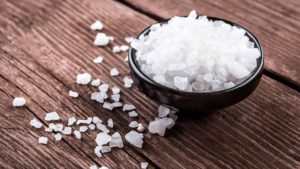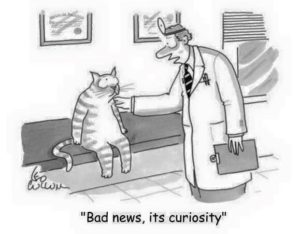I am currently trying to teach a number of men in a weekly Bible study. It is on John 17, the high priestly prayer of Jesus. Together we have looked at the perfect timing of Jesus’s prayer, the Glory of God in that prayer, the perfect knowledge of God, and last week the revealing of God to the world. These men are starting to see the very nature of God displayed in scripture.
Jesus prayed because His time had come, He asked to be glorified, the Father gave Him authority over humanity, this humanity can find eternity in knowing the Father and the Son, all so that we can reveal God to the world.
But what about the one that got away? What about Judas that allowed him to elude the net by the Greatest Fisher of Men? Jesus during this three-year teaching and preaching period, cast a wide net, but not all were wrestled into the boat.
Only the twelve men in all history have had the intimate, personal relationship to Jesus the incarnate Son of God. Judas along with the other eleven has ever been more exposed to God’s perfect truth. No other has had the crash course in experiential love. They all were exposed in an intimate first-hand washing of God’s love, compassion, power, kindness, forgiveness, and grace. No group of followers could come close to the very essence of God. Yet through it all Judas escaped the net. In the most indescribably precious, and blessed years the heart of Judas was not softened.
Judas defies comprehension. Judas constantly and with persistence of mind rejected the very truth of God in the flesh. And he hid it from everyone around him with skill. The only one to see into the heart of this chosen fisher of men and see the wicked rebellion was Jesus. And He called him a devil.
Judas did not escape from guilt. Just like the pain we feel as we accidentally burn ourselves, so guilt is an intrinsic and automatic warning of spiritual danger. It was guilt that drove Judas to remorse which in turn led to his death. Do not confuse guilt and remorse with the requisite answer to both. The answer to both is repentance. Repentance is an act of the will. Judas was teachable but he was not willing to change. And in the last moment of his life, his unwillingness to change is what condemned him.

 With apologies to Dr. Henry T. Hodgkin a medical doctor and Quaker missionary in the early 1900’s, I wish to share with you a philosophy that he wrote just prior to the first World War. He was a true pacifist and was feeling the brunt of the national ardor of becoming part of the War of all Wars. It speaks to me as what a Christian attitude should be. I have taken a little license to paraphrase his text to bring common vernacular and understanding. It is primarily what kind of attitude one should have when confronted by someone with a differing opinion.
With apologies to Dr. Henry T. Hodgkin a medical doctor and Quaker missionary in the early 1900’s, I wish to share with you a philosophy that he wrote just prior to the first World War. He was a true pacifist and was feeling the brunt of the national ardor of becoming part of the War of all Wars. It speaks to me as what a Christian attitude should be. I have taken a little license to paraphrase his text to bring common vernacular and understanding. It is primarily what kind of attitude one should have when confronted by someone with a differing opinion. I’m no chemist, but one of the most stable substances in the world is salt. The chemical bond is very tight. You see, sodium and chlorine are happy to become one and share their one electron. The life of the salt is very tight. Mr. Sodium and Mrs. Chlorine are happily married. They are like the happily married couple that just loves to be married, no matter what hits the fan. Little can separate them.
I’m no chemist, but one of the most stable substances in the world is salt. The chemical bond is very tight. You see, sodium and chlorine are happy to become one and share their one electron. The life of the salt is very tight. Mr. Sodium and Mrs. Chlorine are happily married. They are like the happily married couple that just loves to be married, no matter what hits the fan. Little can separate them.

 The only being that is completely self-sufficient is God, all others must and are driven to consume. If you don’t, you die. Whether it is good for you vegetables, or not so good for you half-pound hamburger covered with cheese and accompanied by greasy fried potatoes, you will consume. Again, this is a motive or a decision point that you must come to order for you to live. The desire to incorporate something outside of yourself is neither right or wrong, it is part of being God’s creation. We come into the realm of good and bad is when we start making the decision as to how to satiate that desire.
The only being that is completely self-sufficient is God, all others must and are driven to consume. If you don’t, you die. Whether it is good for you vegetables, or not so good for you half-pound hamburger covered with cheese and accompanied by greasy fried potatoes, you will consume. Again, this is a motive or a decision point that you must come to order for you to live. The desire to incorporate something outside of yourself is neither right or wrong, it is part of being God’s creation. We come into the realm of good and bad is when we start making the decision as to how to satiate that desire.